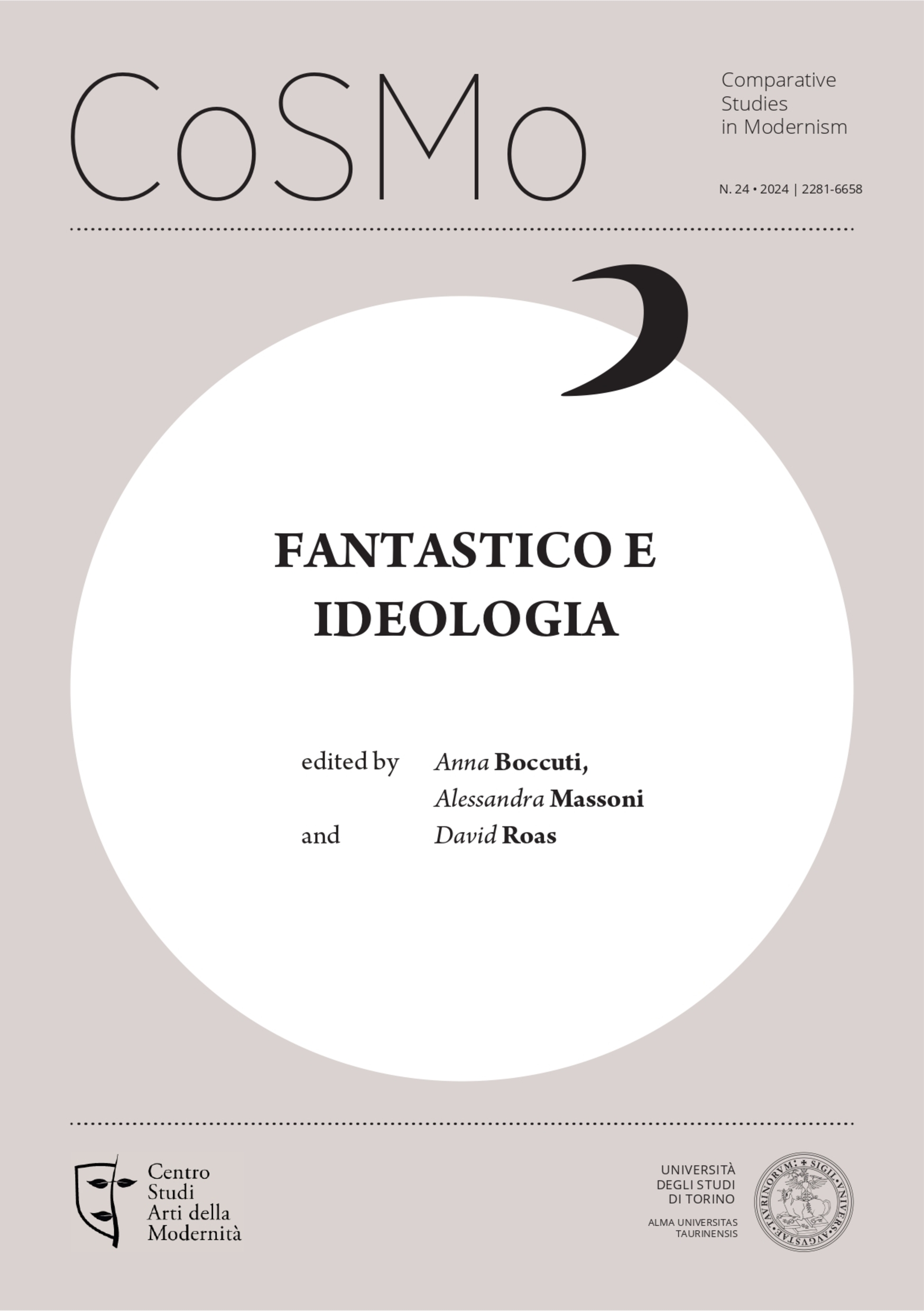When the Fantastic Meets the Dystopic
“La biblioteca fantasmal” by José María Merino
DOI:
https://doi.org/10.13135/2281-6658/10699Keywords:
Fantastic Narrative, Dystopia, Fantastic of Perception, Fantastic of Discourse, José María Merino, Noticias del AntropocenoAbstract
In “La biblioteca fantasmal” (2021), José María Merino creates the fantastic effect by adding aspects of the uncanny to the realistic plot of the story, the protagonist's visit to a Swiss library. On the level of perception, the referential contexts of Zurich and Madrid serve as a backdrop for the hero's encounter with a deceased friend while, on the level of discourse, the structure of the Zurich library strangely coincides with the fictional spaces in some of Borges' texts. Moreover, these same modalities set off a dystopian process: slight modifications in the appearance of the cities mentioned generate a total urban disintegration, which is reflected in a decomposition of literary masterpieces. Compromising both the human future and the narrative itself, the encounter between the fantastic and the dystopian emphasizes the socio-cultural relevance of the story and intensifies the hesitation experienced by the reader.
Downloads
Downloads
Published
Issue
Section
License
Authors keep the copyrights for their work and give the journal the work’s first publication copyright, which is at the same time licensed under a Creative Commons License – Attribution, which in turn allows other parties to share the work with an acknowledgement of the work's authorship and initial publication in this journal.
Content Licence

You are free to copy, distribute and transmit the work, and to adapt the work. You must attribute the work in the manner specified by the author or licensor (but not in any way that suggests that they endorse you or your use of the work).
Metadata licence

CoSMo published articles metadata are dedicated to the public domain by waiving all publisher's rights to the work worldwide under copyright law, including all related and neighboring rights, to the extent allowed by law.
You can copy, modify, distribute and perform the work, even for commercial purposes, all without asking permission.






